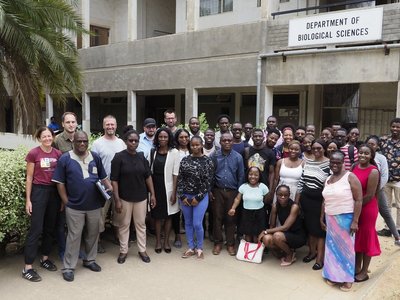

The world is currently facing an unprecedented loss of biodiversity. According to the latest global assessment by the Intergovernmental Platform on Biodiversity and Ecosystem Services (IPBES), approximately 1 million animal and plant species face extinction. Furthermore, the average abundance of many native species has declined sharply over recent decades. Despite these alarming findings, a significant gap remains in our understanding of Earth’s total biodiversity, particularly in the “Global South,” where many regions and lesser-studied species groups lack sufficient data. Zambia exemplifies this issue. The distribution and genetic profiles of its plants and animals are largely undocumented, despite their potentially vital role in supporting local livelihoods through food, medicine, raw materials, and essential ecosystem services such as water purification and climate regulation.
Effective biodiversity monitoring requires rapid and reliable species identification. Traditional methods, which rely on morphological characteristics, are often time-intensive and costly. DNA barcoding—a standardized method that identifies species through specific DNA sequences—provides a faster, more cost-efficient solution. However, this approach depends on comprehensive and reliable reference databases, which are largely unavailable for underexplored regions and taxa. Our collaborative project aimed to address this challenge in Zambia.
In the KoEF funded partnership Inventorying biodiversity in the tropics: Establishing a DNA-barcoding pipeline for characterizing and monitoring Zambia’s biodiversity involving researchers from the University of Graz and the Natural History Museum in Vienna, Austria, alongside the University of Zambia (UNZA), the project sought to build capacity for a national DNA barcoding initiative. Two hands-on workshops at UNZA trained Zambian researchers, technicians, and students in generating and analyzing DNA barcoding data. As part of this effort, initial reference barcode data were created for fish, dragonflies, and damselflies—groups with high species diversity and ecological importance in Zambia.
